Dandruff: 6 Effective Natural Remedies For A Flake-Free Scalp
Banish the root cause of dandruff and embrace natural remedies for a flake-free scalp.
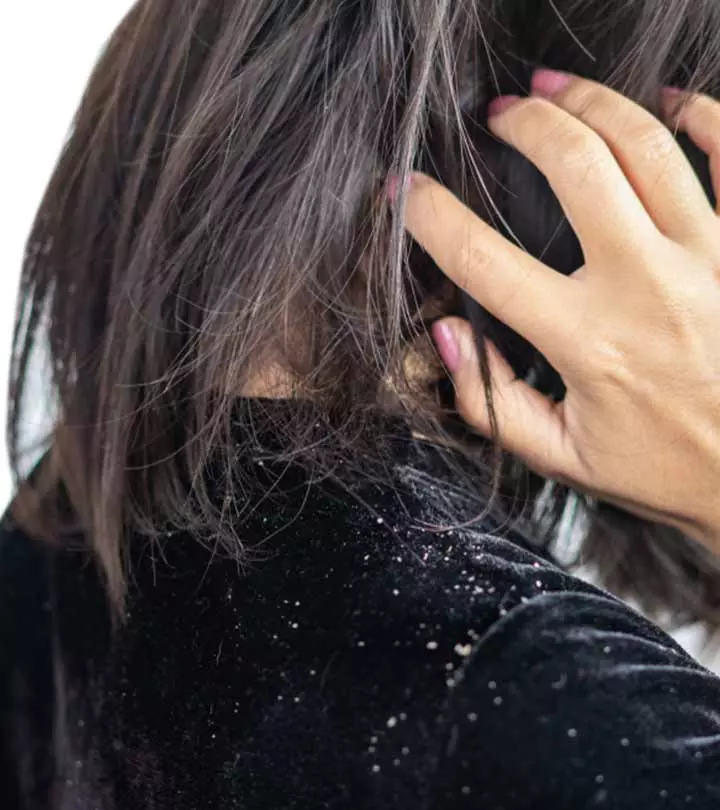
Image: Shutterstock
Dandruff is primarily caused by a dry scalp and other underlying causes. It affects many people and is a common hair issue. The condition can irritate your scalp and make it itchy and flaky. Even though it is not a major health risk, it can make you feel awkward or self-conscious. This article discusses everything you need to know about dandruff and how to treat it naturally. Take a look.

In This Article
Some Interesting Facts About Dandruff
Dandruff is a fairly common skin condition. There are various types of dandruff that affect scalp health differently and cause discomfort. Here are some interesting things about dandruff that are worth noting:
- Dandruff does not discriminate on the basis of age. It can happen to anyone, be it younger or older people.
- Dandruff may affect your face and body as well. Many women may find dandruff on their eyebrows and on the sides of their nose. Dandruff mainly affects the parts of the body where excess oil is produced.
- Dandruff affects almost half the adult population in the world (1).
- Along with humans, dandruff may also affect animals like cats and dogs (2).
- You can find your DNA in the dandruff from your scalp. This may help in forensic research (3).
 Trivia
TriviaNow that we know some interesting facts about dandruff, lets take a look at the different causes of dandruff.
Key Takeaways
- Dandruff affects one in every two individuals, irrespective of their age group.
- This condition usually worsens in winter as the scalp gets dried out further.
- Apart from dry scalp, underlying skin conditions and poor hair care also lead to dandruff.
- You can naturally treat dandruff from the comfort of your home by using apple cider vinegar, tea tree oil, etc.
What Are The Causes Of Dandruff?
1. Dry Scalp
Dry scalp
is the number one cause of dandruff among people (4). If dry scalp is the reason behind your dandruff, then it may get worse during winter. This is because the low humidity in the colder months makes your skin dry out even more.
It is important to understand the difference between dandruff and dry scalp to determine the right treatment approach and choose the appropriate remedies.
2. Lack Of Good Hygiene
Lack of good hair and scalp hygiene may also cause dandruff. If you neglect washing your scalp and hair regularly, then you are more prone to suffer from dandruff. This is because it allows oil, dirt, and product residue to accumulate and build up on the scalp, which leads to dandruff.
 Pro Tip
Pro Tip3. Skin Condition
Skin conditions like seborrheic dermatitis may cause dandruff on your scalp. Seborrheic dermatitis is a chronic skin condition that causes inflammation on your scalp (5).
Understanding the differences between seborrheic dermatitis and dandruff can help you choose the right treatment and get better relief.
4. Malassezia
Malassezia is a fungus that is normally present on everyones scalp. When your scalp’s microbiome is out of balance, it causes an increase of Malassezia, which leads to dandruff (6). It can also cause itching and irritation on the scalp.
5. Stress
Excessive stress may result in a compromised immune system (7). This may allow fungi like Malassezia to thrive and cause dandruff on your scalp.
6. Contact Dermatitis
Contact dermatitis is a condition that develops when the skin comes in direct contact with a substance, irritant, or product. This may cause itchy rashes, flakes, and inflamed skin. Research suggests that sensitivity to the chemicals or ingredients present in hair care products may cause such a reaction on the scalp. This may likely increase the risk of developing dandruff (8). If you have started using a new hair care product and observe sudden itchiness and flakiness, your skin may be allergic or sensitive to that product. Discontinue using the product immediately. If you are unsure about which product is causing this reaction, you can use the process of elimination to determine the product.
The first step for treating dandruff is to identify its symptoms. Scroll down to the next section to check them out.
Different Symptoms Of Dandruff
The various symptoms of dandruff that you may notice include:
- Flakes on your scalp, hair, and eyebrows.
- Itching on the scalp.
- Dandruff may become worse during the winter season.
- It may also become worse when you are stressed (9).
If you are suffering from dandruff, rest assured that there are many ways to treat it. Here are a few home remedies that you can try to keep dandruff in control.
How Do You Get Rid Of Dandruff?
There are many different ways to treat dandruff naturally, ranging from home remedies to meditation. Check them out!
I Home Remedies
1. Apple Cider Vinegar
Using apple cider vinegar for dandruff is an effective and common remedy. Its main component is acetic acid, known to have strong antifungal properties (10). Acetic acid is known to have strong antifungal properties (11). Hence, using ACV may help with treating the dandruff caused by Malassezia.
You Will Need
- 1 cup apple cider vinegar
- 1 cup water
What To Do
- Mix the apple cider vinegar and water together.
- Pour this ACV mixture over your hair after washing it.
- Leave the mix in your hair for 15 minutes before rinsing it off with plain water.
How Often
Every time you wash your hair.
2. Tea Tree Oil
Using tea tree oil for dandruff is a popular natural remedy. Tea tree oil is known for its antimicrobial and anti-inflammatory properties (12). Hence, it may help treat Malassezia-induced dandruff.
You Will Need
- Regular shampoo
- Tea tree oil
What To Do
- Add 8-10 drops of tea tree oil to your bottle of shampoo.
- Use this shampoo to wash your hair.
- Alternatively, you can use tea tree oil-based shampoo.
How Often
Every time you wash your hair.
A blogger describes her experience of suffering dry scalp and dandruff and how tea tree oil-based shampoo helped. She shares that she was anxious about using tea tree oil-based shampoo at first as she disliked its smell, but after the first wash, her hair became shiny, smooth, and silky. She stated, “By the end of the week, I was left with complete and utter surprise. The dandruff had lessened (i).”
3. Virgin Coconut Oil
Virgin coconut oil
may help in hydrating your scalp and keeping it moisturized (13). As it helps prevent dryness of the scalp, it may also prevent your dandruff from worsening.
You Will Need
- Virgin coconut oil
What To Do
- Take a few drops of virgin coconut oil in the palm of your hand.
- Massage the oil into your scalp and hair using your fingertips.
- Keep the oil in your hair for 1-2 hours, then wash it off.
How Often You Should Do It
Once or twice a week.
4. Aloe Vera
Aloe vera is believed to have antibacterial and antifungal properties (14). Hence, it may help in treating dandruff.
You Will Need
- Aloe vera gel
What To Do
- Apply aloe vera gel as a hair mask.
- Keep it in your hair for 1-2 hours.
- Wash with a mild shampoo.
How Often
Once a week.
II. Meditation
As mentioned before, stress may cause dandruff to worsen (15). Excessive stress may result in a compromised immune system, which may help Malassezia to thrive. Hence, to reduce stress, you can try meditation. You may also try yoga or aromatherapy to reduce de-stress every day.
III. Good Hair Hygiene
Having good hair hygiene can help in lessening the effect of dandruff tremendously. Washing your hair regularly with shampoo and keeping it moisturized is a must if you want to treat dandruff. Additionally, using shampoos with ingredients like ketoconazole may also help in treating dandruff (16).
 Pro Tip
Pro TipThese valuable tips on how to get rid of dandruff offer effective solutions that can improve scalp health and reduce flakiness. You may be wondering how long it will take for you to see the effects of these treatments. Find out in the next section!
How Long Does It Take To Get Rid Of Dandruff?
It may take around 6 to 7 weeks to see any results of the home remedies. Hence, do not get discouraged if you do not see an immediate improvement in your dandruff. Be patient and try out the remedies for a month or two. If you still do not see any improvement, you may consult a doctor.
When Should You See A Doctor?
Most of the time, dandruff does not require medical attention. However, if you see no improvement after using anti-dandruff shampoo or following home remedies, you may consult a dermatologist to figure out the root cause of your dandruff and get it treated medically.
Dandruff is a common skin condition that can affect anyone. Though harmless, it can make your scalp itchy, dry, and flaky. Dry scalp, lack of hygiene, fungal infection, and stress are reasons for getting dandruff on the head. During the winter season, dandruff may worsen, and it can also become unmanageable if you are stressed. However, the remedies discussed above may help you get rid of dandruff. Following these and maintaining a proper hair care routine will help reduce flakiness and maintain your scalp health.
Frequently Asked Questions
Should you scratch dandruff?
No, you should not scratch a dandruff-covered scalp. Apply some oil to the scalp, then gently brush off the flakes. Scratching the scalp can lead to inflammation and worsen the condition.
Does warm water cause dandruff?
Warm water does not cause dandruff, but using hot water might. Hot water depletes moisture from your scalp and hair, leading to a dry scalp that could cause dandruff.
Is combing out dandruff good?
You can gently brush off dandruff from your scalp after applying oil. Then, wash your scalp with an anti-dandruff shampoo and some warm water.
How often should I wash my hair if I have dandruff?
Depending on how severe your condition is, you may have to wash your hair twice a week or more frequently. But don’t wash your hair every day as it can deplete your hair’s moisture and worsen the condition. Finish off with rinsing your hair with cold water.
Is cold water better for dandruff?
Cold water seals the hair cuticles, thus preventing any moisture from leaving the strands or any harmful substance from entering them. After washing your hair, rinse it with cold water.
Learn how to combat dandruff and promote hair growth with a DIY homemade hair mask. Check the video below to find an effective remedy that helps treat dandruff and prevent hair fall, while supporting the growth of healthy hair.
Personal Experience: Source
StyleCraze's articles are interwoven with authentic personal narratives that provide depth and resonance to our content. Below are the sources of the personal accounts referenced in this article.
(i) The fight against dandruff
https://www.thea-blast.org/student-life/health/2018/05/15/the-fight-against-dandruff/
References
Articles on StyleCraze are backed by verified information from peer-reviewed and academic research papers, reputed organizations, research institutions, and medical associations to ensure accuracy and relevance. Read our editorial policy to learn more.
- Seborrheic Dermatitis and Dandruff: A Comprehensive Review
https://www.ncbi.nlm.nih.gov/pmc/articles/PMC4852869/ - Malassezia Infections in Humans and Animals: Pathophysiology, Detection, and Treatment
https://journals.plos.org/plospathogens/article?id=10.1371/journal.ppat.1004523 - Dandruff as a potential source of DNA in forensic casework
https://pubmed.ncbi.nlm.nih.gov/9670516/ - A New Postulate on Two Stages of Dandruff: A Clinical Perspective
https://www.ncbi.nlm.nih.gov/pmc/articles/PMC3129121/ - Seborrheic dermatitis
https://onlinelibrary.wiley.com/doi/abs/10.1111/j.1468-3083.2004.00693.x - Malassezia, dandruff and seborrhoeic dermatitis: an overview
https://onlinelibrary.wiley.com/doi/abs/10.1111/j.1365-2133.2011.10570.x - Stress Damages Immune System and Health
https://www.discoverymedicine.com/Ronald-Glaser/2009/07/18/stress-damages-immune-system-and-health/ - DANDRUFF: THE MOST COMMERCIALLY EXPLOITED SKIN DISEASE
https://www.ncbi.nlm.nih.gov/pmc/articles/PMC2887514/ - Dandruff Cradle Cap and Other Scalp Conditions
https://medlineplus.gov/dandruffcradlecapandotherscalpconditions.html - Comparison of the apple vinegar with other chelating solutions on smear layer and calcium ions removal from the root canal
http://www.lww.com/ - Growth inhibition of a phytopathogenic fungus Colletotrichum species by acetic acid
https://pubmed.ncbi.nlm.nih.gov/14717453/ - Melaleuca alternifolia (Tea Tree) oil: a review of antimicrobial and other medicinal properties v
https://pubmed.ncbi.nlm.nih.gov/16418522/ - A randomized double-blind controlled trial comparing extra virgin coconut oil with mineral oil as a moisturizer for mild to moderate xerosis
https://pubmed.ncbi.nlm.nih.gov/15724344/ - The Review on Properties of Aloe Vera in Healing of Cutaneous Wounds
https://www.ncbi.nlm.nih.gov/pmc/articles/PMC4452276/ - [Modern management of dandruff]
https://pubmed.ncbi.nlm.nih.gov/16617752/ - Successful treatment and prophylaxis of scalp seborrhoeic dermatitis and dandruff with 2% ketoconazole shampoo: results of a multicentre doubleblind
placebocontrolled trial
Read full bio of Tere Pruett
Read full bio of Anjali Sayee
Read full bio of Eshna Das
Read full bio of Monomita Chakraborty







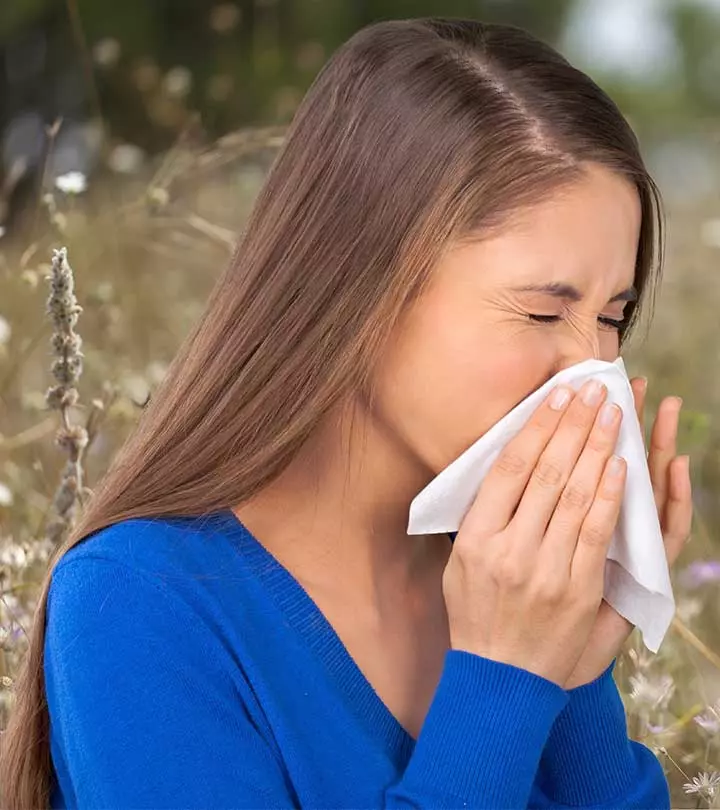
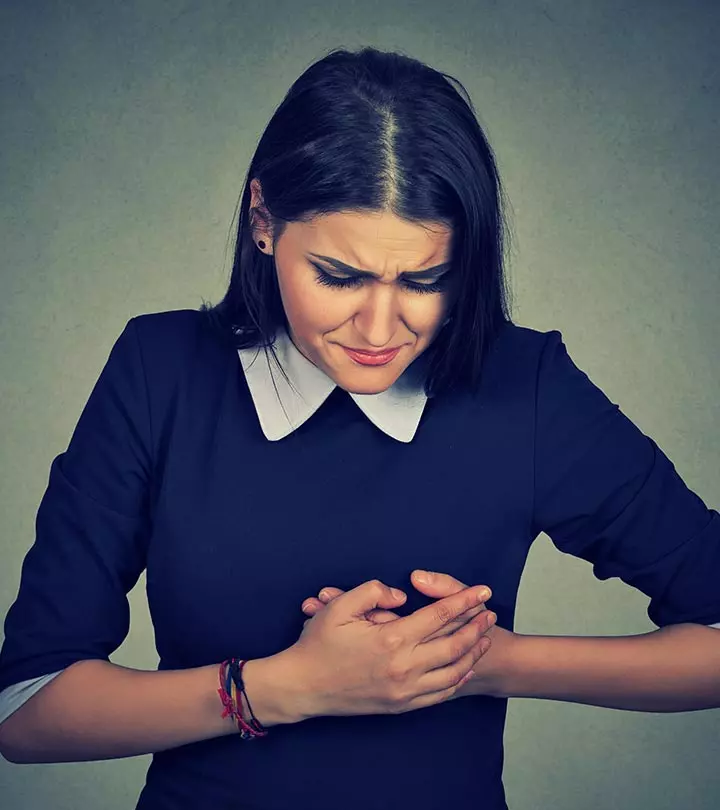
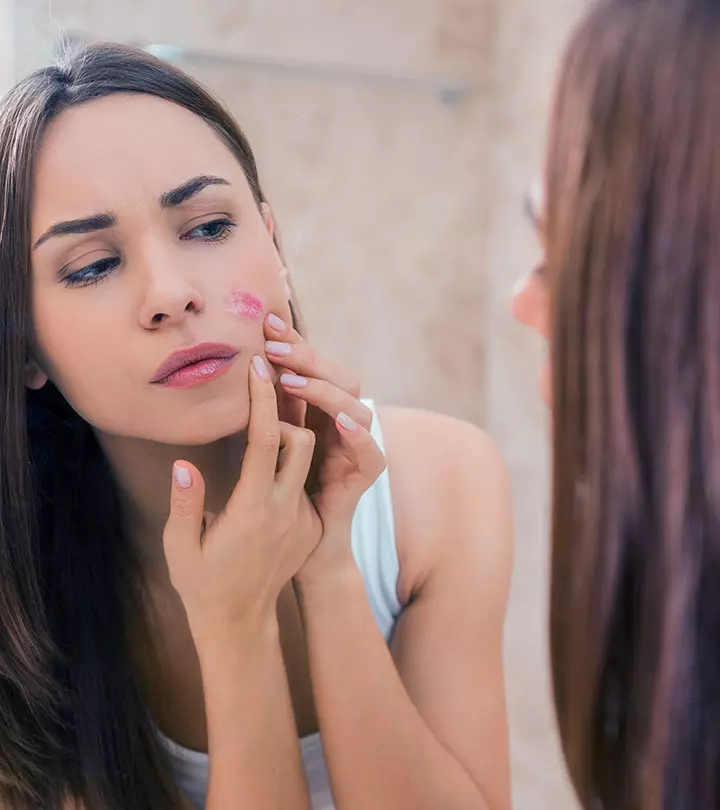

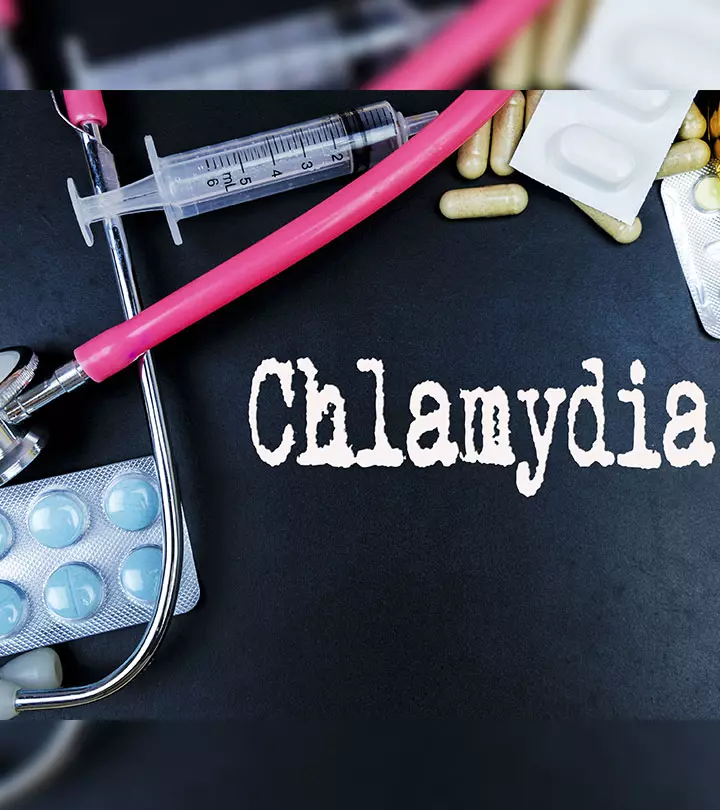
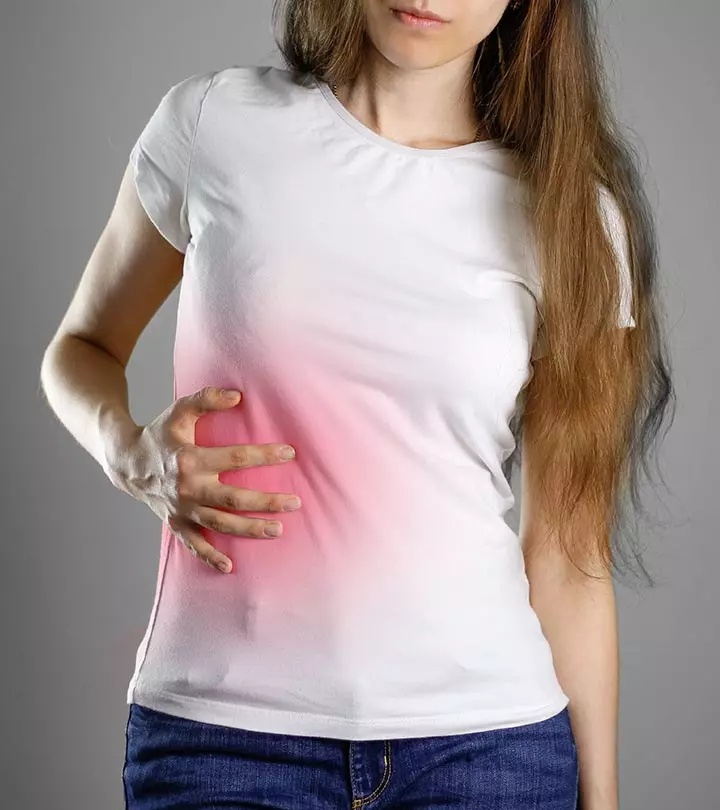
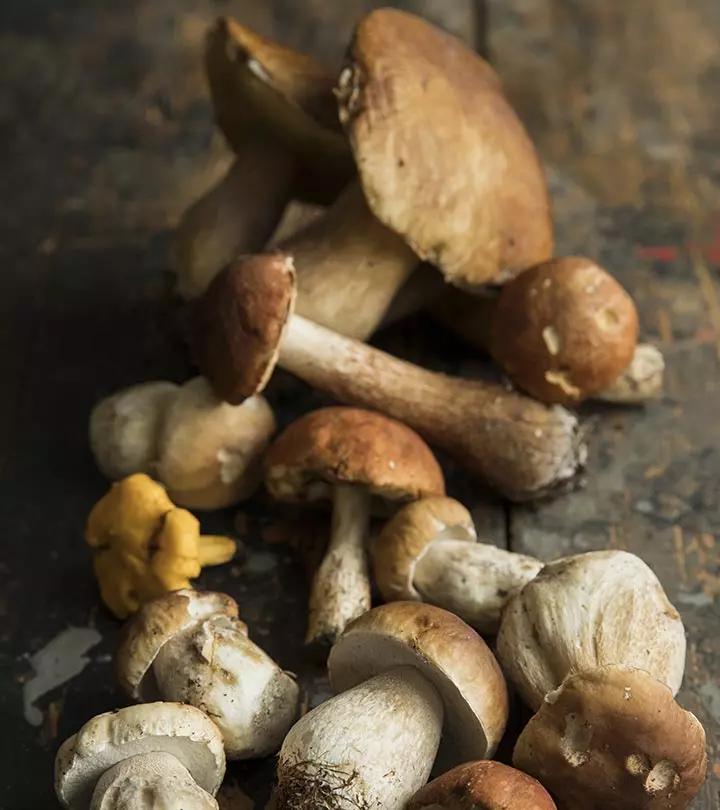
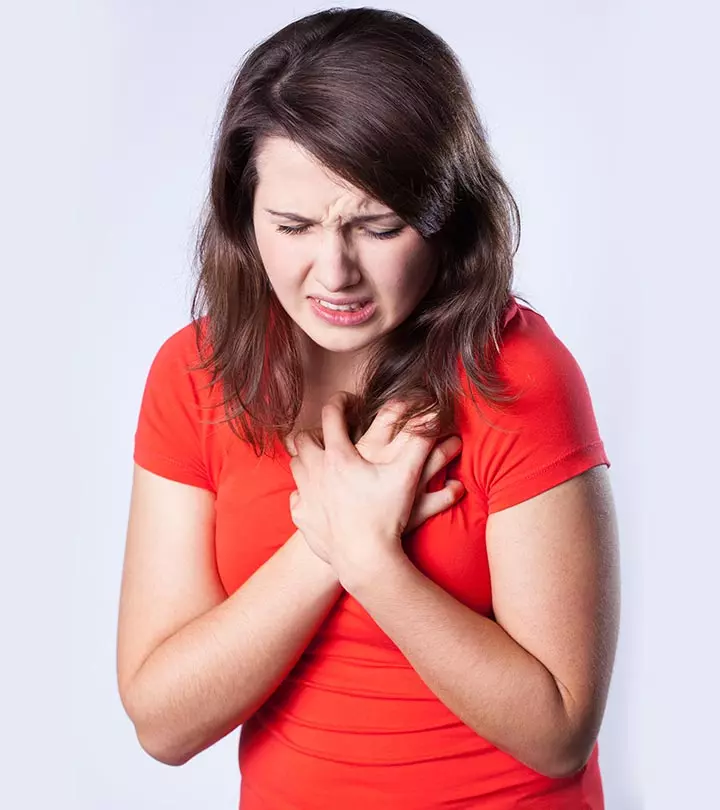
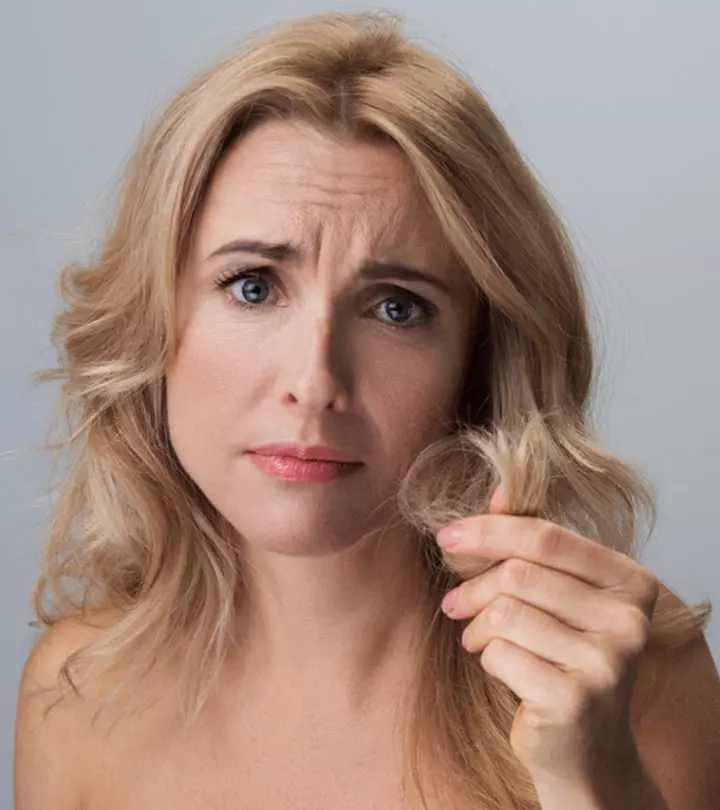
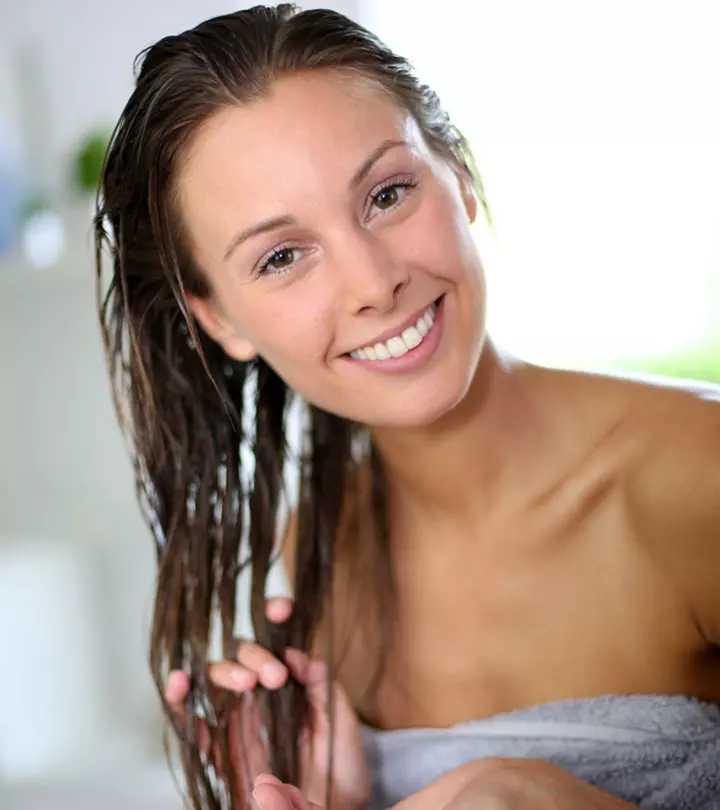

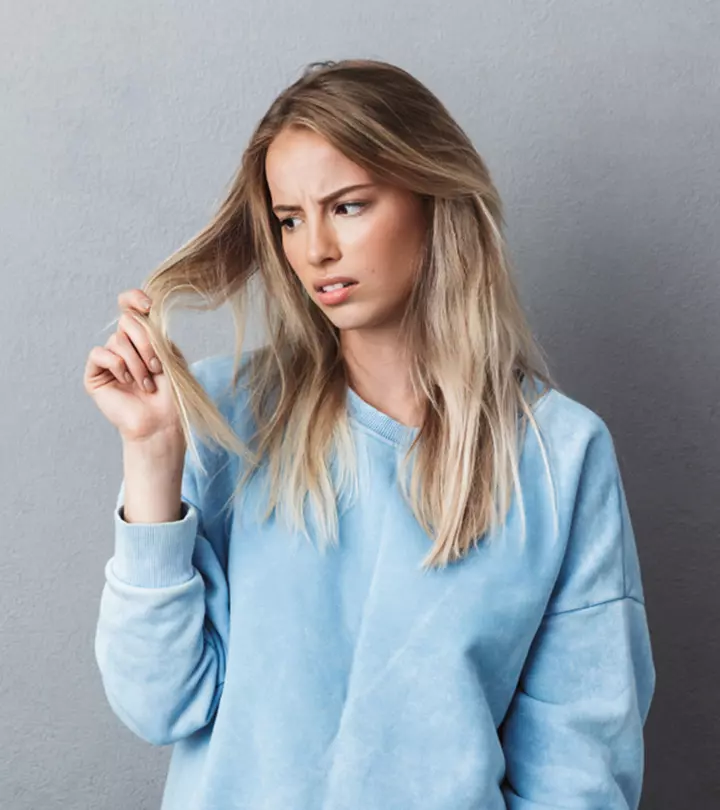
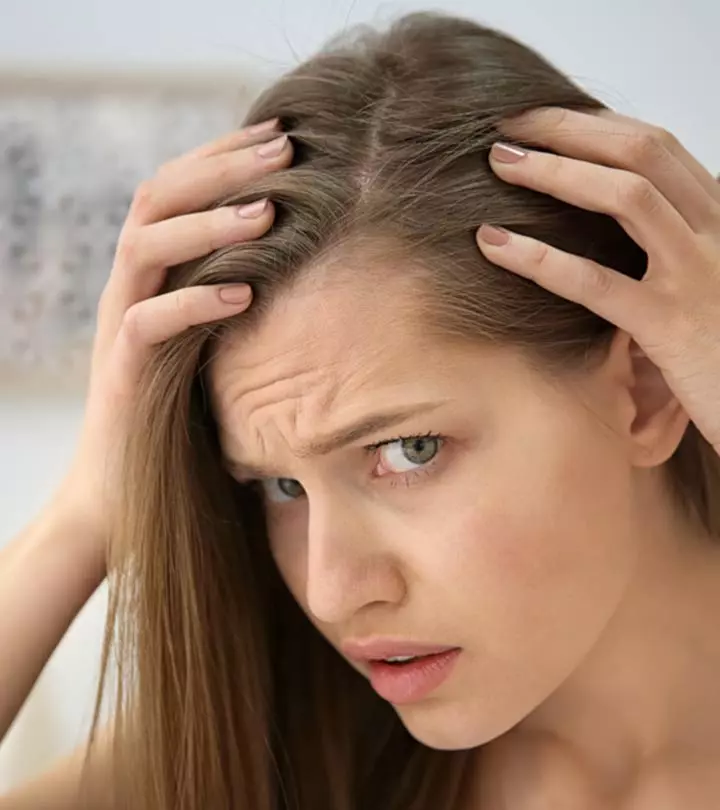


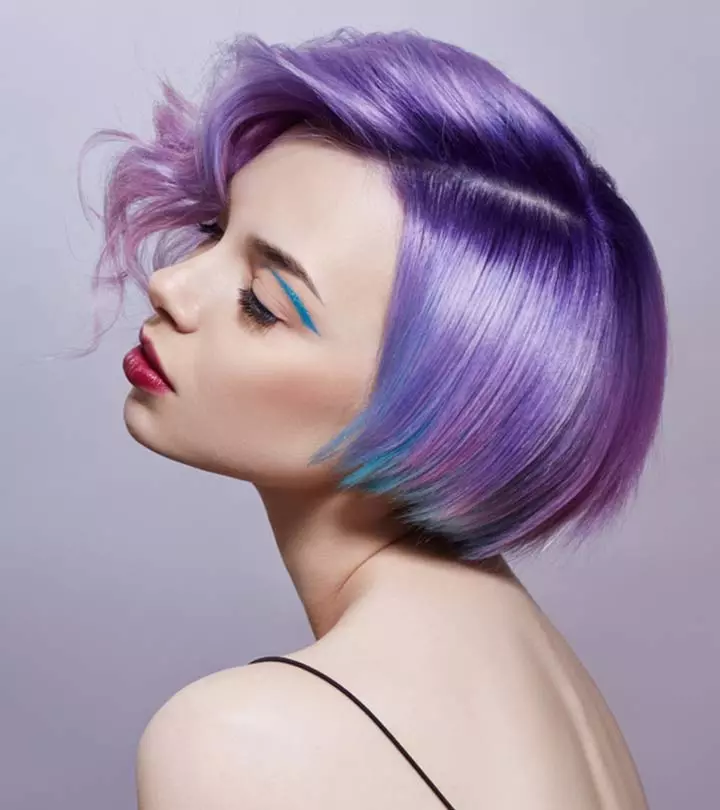
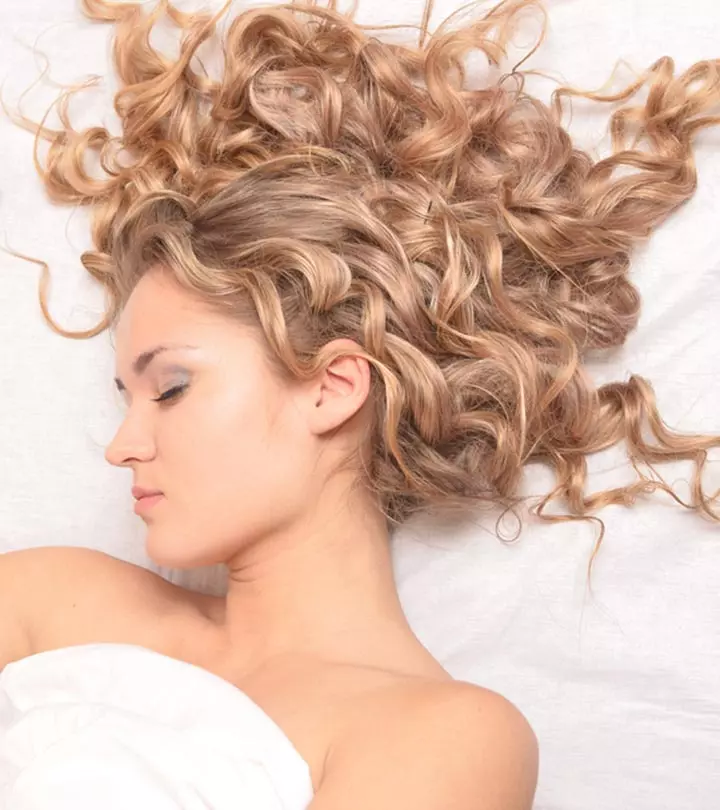

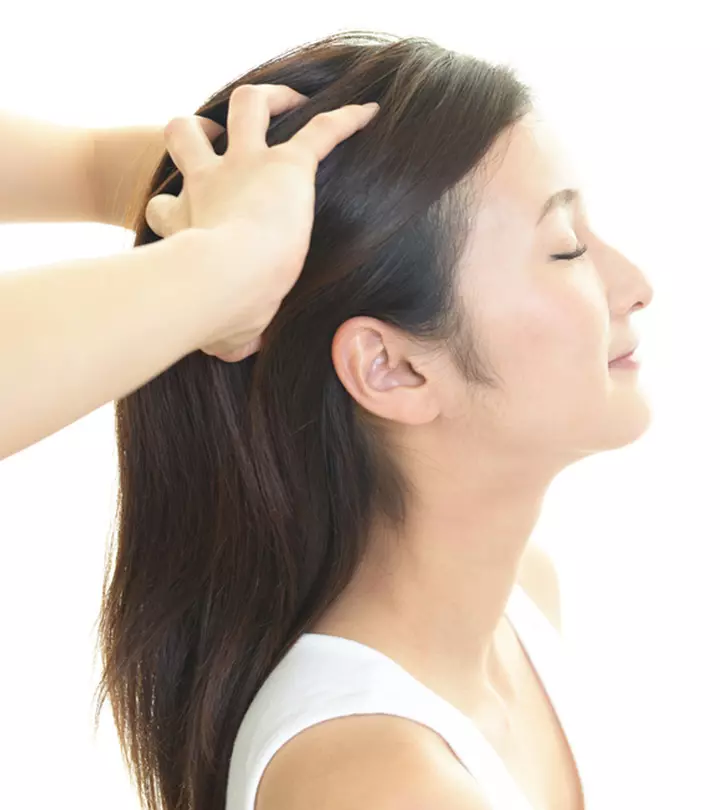
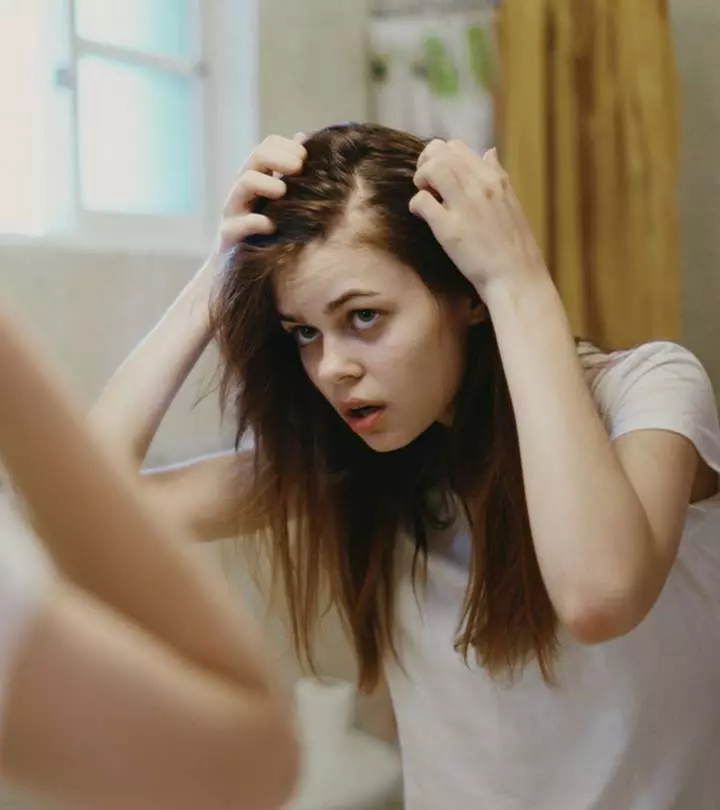
Community Experiences
Join the conversation and become a part of our empowering community! Share your stories, experiences, and insights to connect with other beauty, lifestyle, and health enthusiasts.